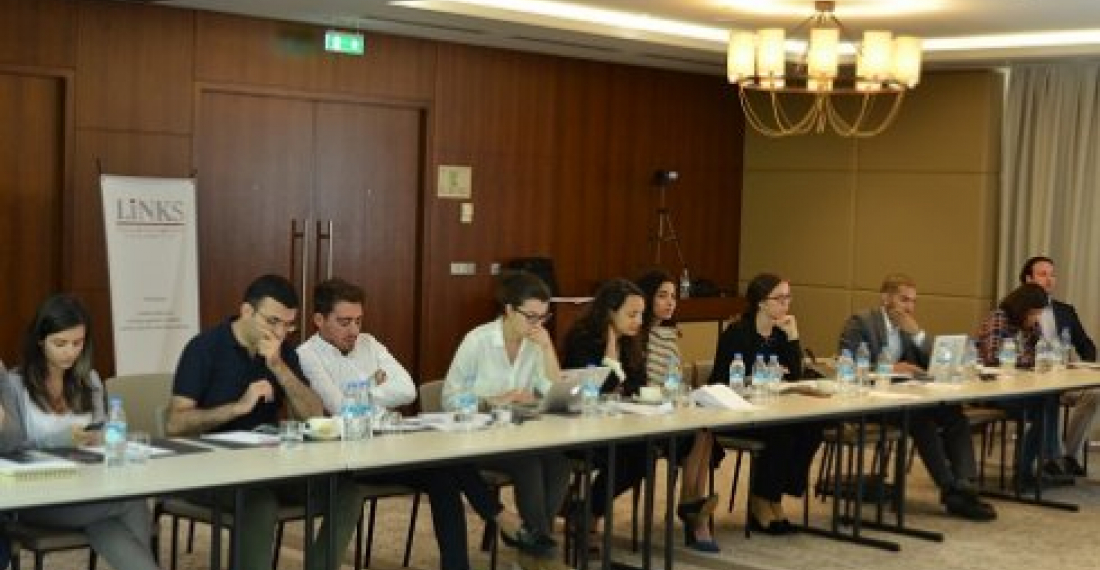Opinion: "At a work-shop with young people from 14 countries in Borjomi last weekend I was once more reminded of the great resource of hope, ideas, energy and good will that lies largely untapped, but that is much needed if we are going to seriously engage in tackling global and regional challenges ahead", writes Dennis Sammut in this op-ed.
I spent last weekend in the Georgian town of Borjomi, together with a group of forty-five mainly young people, discussing global and regional issues. Whilst many of the participants were from the Caucasus region, others came from other parts of Europe and its neighbourhood.
The event was an initiative of LINKS (Dialogue, Analysis and Research), a small action oriented think tank with a long track record of work in the Caucasus. LINKS is twenty years old this year, and it decided to mark the occasion by going back to the Caucasus to engage with a new generation of activists and thinkers on the main issues of the day.
I have been to hundreds of such meetings over the years, but rarely have I left a meeting so hopeful and so energised. It was not simply the sense of optimism among participants and their ability to think positively and creatively that was most striking, but more so the sense of acute awareness of the challenges ahead.
The timing was not easy - Armenian and Azerbaijan participants were very much sensitive to the fact that in the previous days there had been much bloodshed in the Karabakh conflict zone - Azerbaijani civilians and teenage Armenian conscripts had lost their lives.
Beyond, the crisis in the Gulf was reaching its climax, and on the television screens images of the G20 summit in Hamburg flickered in the background reminding us all of the huge problems facing humanity. But the new generation is no longer willing to accept simplistic answers to complex problems.
The challenge of how to receive and digest information in today's global information jungle may seem daunting, but young people appear to be more discerning than their elders - not quite immune yet to fake news and disinformation, but certainly more aware of it. Social and civil activism is now also taking new forms, cleverly manoeuvring around ever emerging constraints. This is also happening on the global arena where a "third generation" of public diplomacy initiatives and ideas is slowly emerging leaving traditional diplomacy struggling to catch up.
In Borjomi last weekend these difficult issues could be discussed openly and calmly, and what emerged was a wealth of ideas on what can be done better in the future, and how. The tone was set by the keynote speaker, Lord Purvis of Tweed, a member of the Foreign Affairs Committee of the UK House of Lords, who presented a set of challenging and innovative ideas in an excellent and thoughtful opening presentation.
In my work I am often obliged to engage simultaneously with traditional political and diplomatic settings, and in track 2 informal and alternative frameworks. Indeed, an important part of my job is to try to bridge the two. Established politicians and diplomats are often dismissive of civil society initiatives, evaluating them as irrelevant at best. In Borjomi this weekend I was once more convinced of the folly of this approach.
There is a wealth of energy and ideas in many track 2 processes that are much needed if the big challenges of the day are to be resolved. In the Caucasus region, the EU supported EPNK initiative is now engaged in such a venture, despite the fact that the support of governments in the region, as well as the more traditional international diplomatic frameworks, is often lukewarm. Yet despite the all-round cynicism that I encounter every day in the international community, in Borjomi last weekend I was once more reminded of the great resource of hope, ideas, energy and good-will that lies largely untapped, but that is much needed if we are going to seriously engage in tackling global and regional challenges ahead. Cynics should hold their peace. Young civil society has much to give.
Dennis Sammut is the Executive Director and co-founder of LINKS (Dialogue, Analysis and Research). The workshop "Global challenges, shifting regional parameters, and the need for innovative responses" was held in Borjomi, Georgia from 7-9 July 2017 as part of the activities marking the 20th anniversary of LINKS (DAR). For more information please contact office@links-dar.org
photo: Young civil society participants from 14 countries participated at a LINKS (DAR) workshop in Borjomi, Georgia on 7- 9 July 2017







